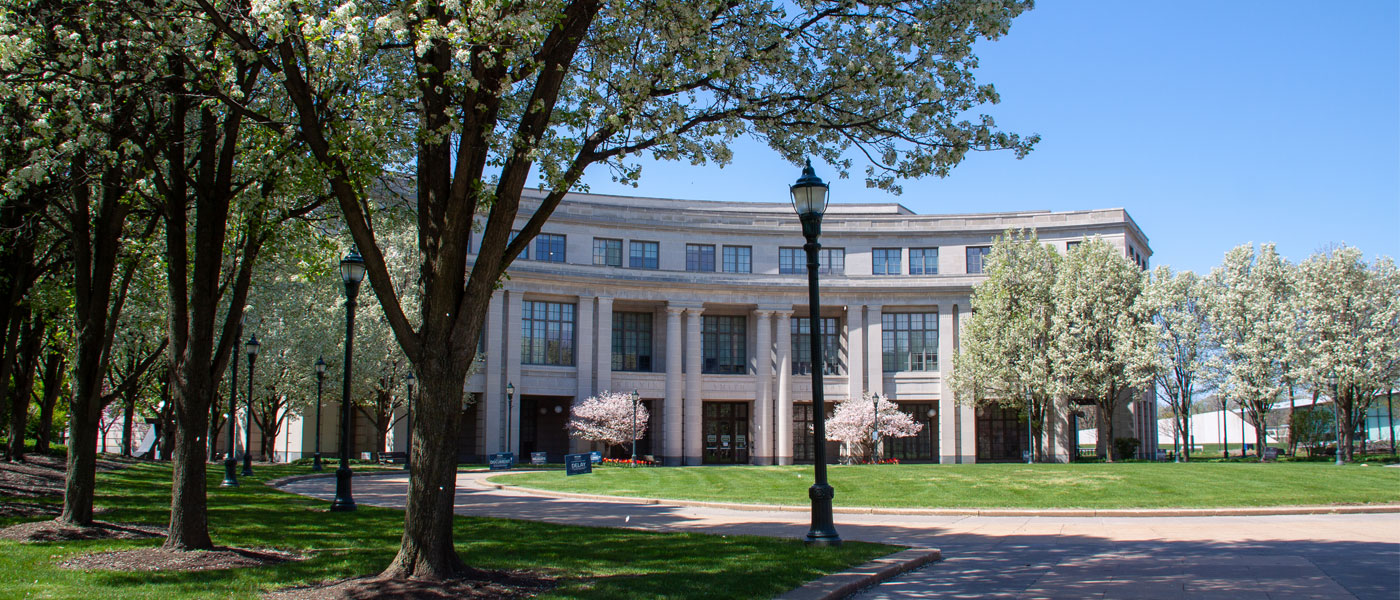When it launched in 2015, the Cleveland Humanities Collaborative sought to build on the academic work of high-performing humanities students at Cuyahoga Community College (Tri-C) by providing them with support services and learning opportunities as they transitioned into—and completed—bachelor’s degree programs at Case Western Reserve University.
Nine years later, the Mellon Foundation is providing nearly $3 million in additional support to CWRU and Tri-C for the program, which now includes students and faculty from Lakeland Community College and Lorain County Community College.
In all, the Mellon Foundation’s commitment to the collaborative—through CWRU and Tri-C—exceeds $6.5 million. The foundation’s first three grants established a pathway for community college students pursuing Associate of Arts degrees to transfer to Case Western Reserve and expanded opportunities for CWRU graduate students in the humanities to become involved in the collaborative’s programming. This work advances the university’s commitment to the humanities, overseen by the Baker-Nord Center for the Humanities.
In addition to advancing existing work, this latest phase of support from Mellon, split nearly equally between CWRU and Tri-C, will allow the collaborative to offer enhanced advising support and on-campus summer programming for transfer students—ensuring that each step they take moves them closer to bachelor’s degrees and beyond.
“Through this additional support from the Mellon Foundation, we’re reaching community college students potentially even earlier in their careers and bringing them to Case Western Reserve for a summer experience where they get a sense of what it’s like to be a residential student,” said Lee Thompson, interim dean of the College of Arts and Sciences at Case Western Reserve.
“The collaborative’s focus this summer will emphasize the way humanities skills can lead to meaningful postgraduate opportunities for them,” Thompson said.
Since the collaborative began accepting applicants in 2016, 55 students have been accepted, with 47 matriculating to Case Western Reserve—accounting for nearly 10% of the university’s transfer students and 63% of all humanities transfers.
“The Mellon Foundation’s investments have made four-year humanities degrees attainable for students with limited means, competing priorities and an urgency to earn a family sustaining wage,” said Megan O’Bryan, president of the Tri-C Foundation. “Tri-C provides a rich humanities-learning environment unique in the community college landscape, and we are committed to strengthening this pathway that leads to our students’ success.”
Interested candidates receive access to a program specialist who guides them through the application process. If approved and enrolled, each student of the collaborative receives program support and frequent advising engagements to assist with course selection, academic check-ins and even micro-internships—all with one goal: to ensure a smooth transition to CWRU, and ultimately, end in a four-year degree.
“The Mellon Foundation is excited to partner once again with the Cleveland Humanities Collaborative in advancing opportunities for deserving students through this program,” said Elizabeth Alexander, president of the Mellon Foundation. “The collaborative’s vision and track record reflect our organization’s mission to ‘strengthen, promote, and, where necessary, defend the contributions of the humanities and the arts to human flourishing and to the well-being of diverse and democratic societies.’”

